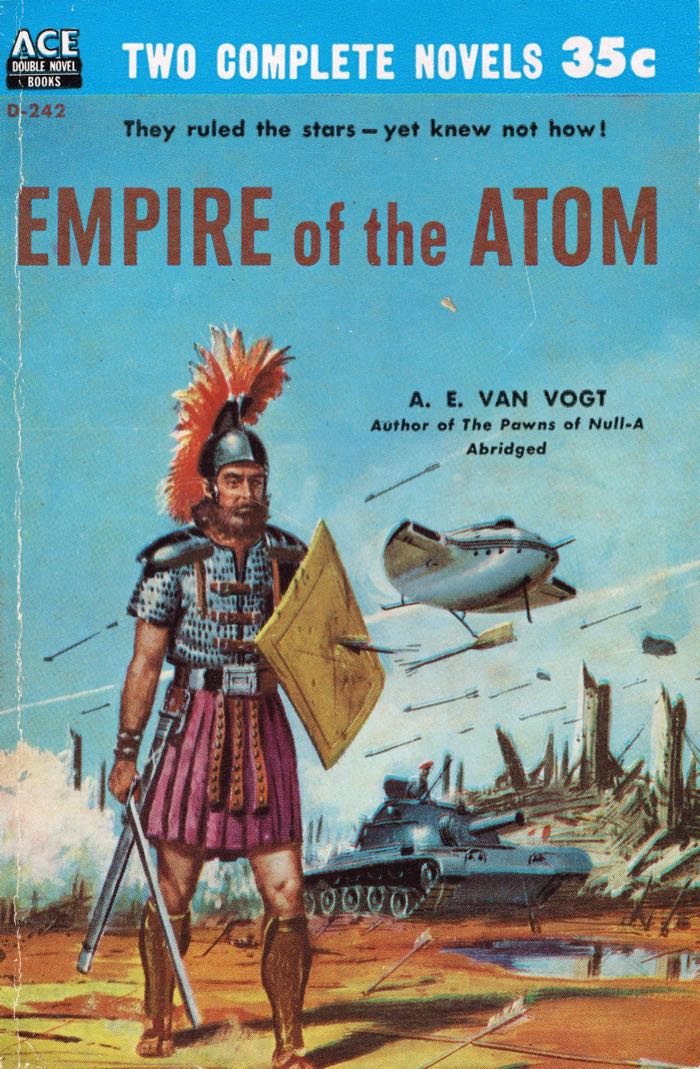Empire of the Atom
Reviewed date: 2005 Jun 22
Rating: 2
190 pages
Empire of the Atom is a parallelization of Robert Graves's I, Claudius. Instead of disabled Claudius of the Roman Empire, van Vogt gives us the mutant Clane of the post-apocalyptic Linn Empire. Instead of Roman gods there are the gods of the Atom: Uranium, Plutonium, Radium, and Ecks. Characters and plot points mirror those of I, Claudius.
But where I, Claudius hangs together and makes a lot of sense, Empire of the Atom is unreasoned. Things happen in Empire of the Atom not because the struggle between characters drive the action, or because of some logical reason within the story, but merely because they must happen--because that's what happened in I, Claudius. So Empire of the Atom mimics the plot of I, Claudius, but fails to provide logical reasons why events happen within the story.
Example: Clane is a mutant and thus considered less than human. For this reason he is nearly murdered at birth. No explanation is ever given for why mutants are despised other than some vague references to religion.
Example: The Linn empire continually stages invasions of Mars and Venus. Why the empire must carry out these invasions is never explained.
Example: The Linn empire has interplanetary spaceships but has no weapons more powerful than swords, spears, and arrows. It's never explained how the engineering knowledge needed to keep atomic spaceships running (and the astronomical and mathematical knowledge needed to navigate them) is preserved while the knowledge of internal combustion engines and gunpowder is lost.
The story of I, Claudius works well in the setting of the ancient Roman Empire. It does not work in a setting that discards all the social and historical underpinnings of the plot and replaces them with gimmicks and handwaving.
